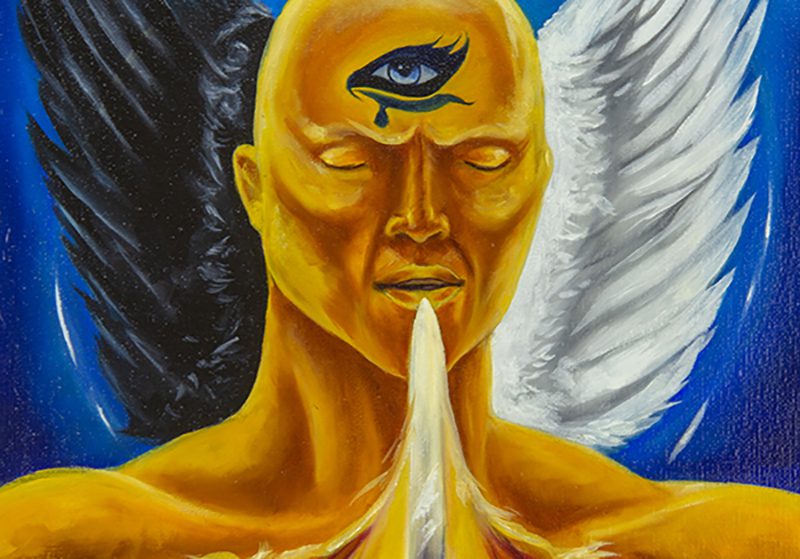
The Truthsayer
Where does this archetype come from? What does it mean to be a Truthsayer and what are the origins of this archetype? A Truthsayer is just that—a speaker of truth. Truthsayer originated from the word soothsayer. Sooth, an Old English word means truth or reality, but it hasn’t been in common use for centuries. Soothsayer is a much better known word and means just that, a person who tells the truth but it eventually became modified to mean a person who claims to foretell the future. Today, no one uses the word soothsayer and Truthsayer is still limited to the urban dictionary but there are certain traits and quirks about a person who feels compelled to speak the truth. Familiar tendencies easily recognized by others. Patterns of behavior that are consistent. In other words, an archetype.
The Truthsayer is an honest person. They seek for the truth in themselves and are willing to make an honest assessment of their own beliefs. They trust their inner voice and the values that guide their life. The truth is a constant source of strength and a strong motive for correct actions. The pursuit of truth is the goal of the Truthsayer. The Truthsayer believes in honorable actions as well as honorable motives.
The Truthsayer follows a personal code of honor that reflects their own deepest truths. They bind themselves to this code of conduct with dedication. They can be incredibly disciplined. Because this code is created by the Truthsayer and not some outside authority figure, the code can be re-examined and modified as needed and it acts as a personal compass for living an honorable life.
The Truthsayer’s “word is as good as his bond” and forms the law by which they align themselves. Their sense of duty to themselves and their code of honor can be a source of inspiration and support for others. The Truthsayer is connected to the wisdom of both positive and negative energies. They can separate fact from fiction, light from darkness and even take the muddled gray and return it to its pristine origins of black and white for the purpose of greater understanding and awareness of the larger reality. They can hold the paradox of life, two opposing forces without losing their balance.
The Truthsayer makes it a point to speak clearly and give all the details (sometimes too many) and generally prevents the kind of misunderstandings that cause arguments and social tension. In a way, they become the balance for the whole room asking questions and prompting further investigation of motives and statements to bring a harmonious element to the conversation.
Getting facts right is another important quality to the Truthsayer. Look to a Truthsayer when you need to verify information. Truthsayers make excellent historians, archeologists, biographers, and researchers. Clarification is an ability to sort things into compartments for understanding but not into camps of right and wrong, good and bad etc.
Some key words and phrases associated with this archetype:
- Wisdom
- Trustworthy
- Reliable
- Honest
- Truth
- Clarity
- Discipline
- Accountable
- Direct
- Transparent
The Absolutist
The Shadow side of the Truthsayer archetype is the Absolutist. The Absolutist is bound by black and white thinking. Black and white thinking gives the Absolutist a false sense of security and a platform from which to preach what they believe is true. Needing all events, ideas, motives and behaviors to belong to two opposing compartments is not much different than any of the other obsessive disorders such as OCD where the external world needs to be modified so that it can be controlled.
The Absolutist tries to fit all of life into the logical world of light and dark, good and bad, acceptable and unacceptable, legal and illegal, moral and immoral. This creates a deep dilemma for the Absolutist. What happens when the legal becomes immoral, the unacceptable becomes the good? This torturous dichotomy makes the Absolutist deeply conflicted.
The Absolutist feels compelled to align everyone to the same truth even if this means imposing their ideals and expectations onto others. This can be done on a very minor scale such as correcting someone’s account of events or reminding them that their time was off by a few minutes, or that they misquoted someone by a word or two. Even though the spirit of their statement was true the Absolutist is fixated on the literal and specific. The Absolutist lives the letter of the law and has no interest in interpretation.
While their intent is to correct and provide accurate feedback, they can end up alienating others and causing them to avoid certain topics or engaging in conversation at all. No one likes to be preached to or be constantly corrected. The Absolutist is focused on being right and feels superior to others, justifying their judgments and harshness.
The Absolutist tends toward extremism. They live by an all or nothing rulebook that leaves little room for moderation and open-mindedness. This all or nothing mindset gives the Absolutist a rigidity that makes them difficult to deal with. This kind of extremism shows a lack of critical thinking and mindless obedience to a set of beliefs. They are rigid and unyielding out of a sense of commitment to their positions or beliefs.
A good example of this rigidity and inflexibility is the character of Javert from Les Miserable. Javert is so obsessed with following the law that he never stops to consider whether or not that law is just and worthy of following. The law is the law. Javert is blind to the nobility and sacrifice of Jean Valjean. When Valjean actually has a chance to kill Javert he does not do it, out of sense of principle, and Javert is both startled by Valjean for his mercy and also disgusted with what he deems a lack of commitment to his cause. Javert has single-minded focus on capturing Valjean and bringing him to justice according to the law. Javert cannot reconcile Valjean as both a criminal and noble individual. This causes so much distress that Javert’s only recourse was to commit suicide, thus ending the struggle.
The Absolutist cannot grapple with paradox and contradictions. The Absolutist needs to ally themselves with some authority to which they bind their loyalties. For many, that authority can come in the form of the law, the boss, the religious leader, the guru, etc. This comes from a profound sense of insecurity and the inability to trust themselves and their own inner guidance.
Once they gain this false sense of security, they will not question the authority or their own beliefs nor do they want others to question it either. This alliance with some kind of authority is a form of survival. The authority figure provides the framework for the Absolutist to feel supported and ultimately to provide the guidance they feel they lack. Because of this dependence on some external form of authority the Absolutist lacks problem solving skills and creative thinking. They tend to repress emotions that are not in alignment with this authority or set of beliefs and deem themselves the problem when things don’t fit in the model of black or white. They really believe that if they try harder, focus more, improve faster, that absolutism can be achieved.
Some words and phrases associated with the Absolutist Archetype
- Self-Righteous
- Lawful
- Extremist
- Insecure
- Narrow Minded
- Inflexible
- Pushy
- Judgmental
A few questions to ask to help transform the Absolutist into the Truthsayer
- What are your personal beliefs, values and ideals?
- How are those beliefs and values compartmentalized?
- Can you consider amending this compartmentalization as you grow and change?
- What does it take for you to be able to hold opposing ideas as both true, simultaneously?
- What would happen to you if you were flexible and open?
- Who or what has ultimate authority over you?
- What does your inner authority sound like?
- How can you become more responsible for your words and actions?
- What does the word truth mean to you personally?


2 thoughts on “The Truthsayer / Absolutist Archetype”
Who do you think I am?
Me: I always believe in the truth but at times I try to say or do the right thing but because maybe I am afraid that people might think I’m soft or am I afraid that I might lose their companionship which I always regret because I’m a Truth Sayer
Thanks Paul!